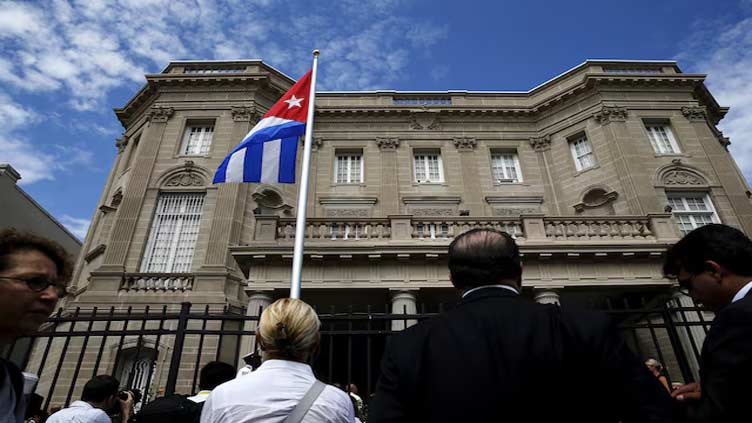Cuba accuses US of half-hearted investigation into 2023 embassy attack

World
No one was hurt and little damage was done to the building
HAVANA (Reuters) - Cuba accused the United States of a half-hearted investigation into a 2023 attack on the Communist-run nation's embassy in Washington, D.C., further souring already-bitter relations between the neighboring countries.
A man in dark clothing hurled two Molotov cocktails at the Cuban embassy in Washington in September 2023 before running into the night, US and Cuban authorities have said. No one was hurt and little damage was done to the building.
Johana Tablada, Cuba's deputy director of US affairs, said US authorities have told Cuban counterparts they are investigating the incident, but officials have yet to identify the perpetrator.
"The message is, against Cuba, you can do whatever you want," Tablada said on Cuban television Wednesday.
She said slow progress violated US law and the international obligation of nations to protect diplomats and their embassies.
A US State Department official told Reuters "the United States is dedicated to the protection of diplomatic personnel and premises in the United States."
The US Secret Service has previously said it was conducting an investigation into the incident and White House officials condemned the attack in 2023.
Tablada said the United States had also declined to label the assault as a "terrorist attack."
The US government calls Cuba a state sponsor of terrorism, a designation that saddles the Caribbean nation with sanctions that have contributed to a grave economic crisis on the island.
Cuba, in turn, alleges the United States, by failing to resolve the 2023 "terrorist" attack on its diplomatic mission in Washington, is guilty of hypocrisy.
The spat is one of several in recent years that have seen Cuba-US relations spiral to fresh lows after an Obama-era thaw that saw renewed cooperation and engagement in some areas.
Under Obama, the Cuban embassy reopened after the countries restored diplomatic ties severed since 1961, following the end of Fidel Castro's revolution in 1959.
Cuban investigators critiqued the US investigation on Cuban television Wednesday, noting that a large number of municipal and embassy surveillance cameras near the attack should have made identifying the assailant relatively easy for US law enforcement.
In a separate attack in 2020, a US citizen born in Cuba, Alexander Alazo, opened fire on the embassy with an assault rifle. A federal judge recently said Alazo, who was arrested after the attack, would be conditionally released after psychiatric treatment.


